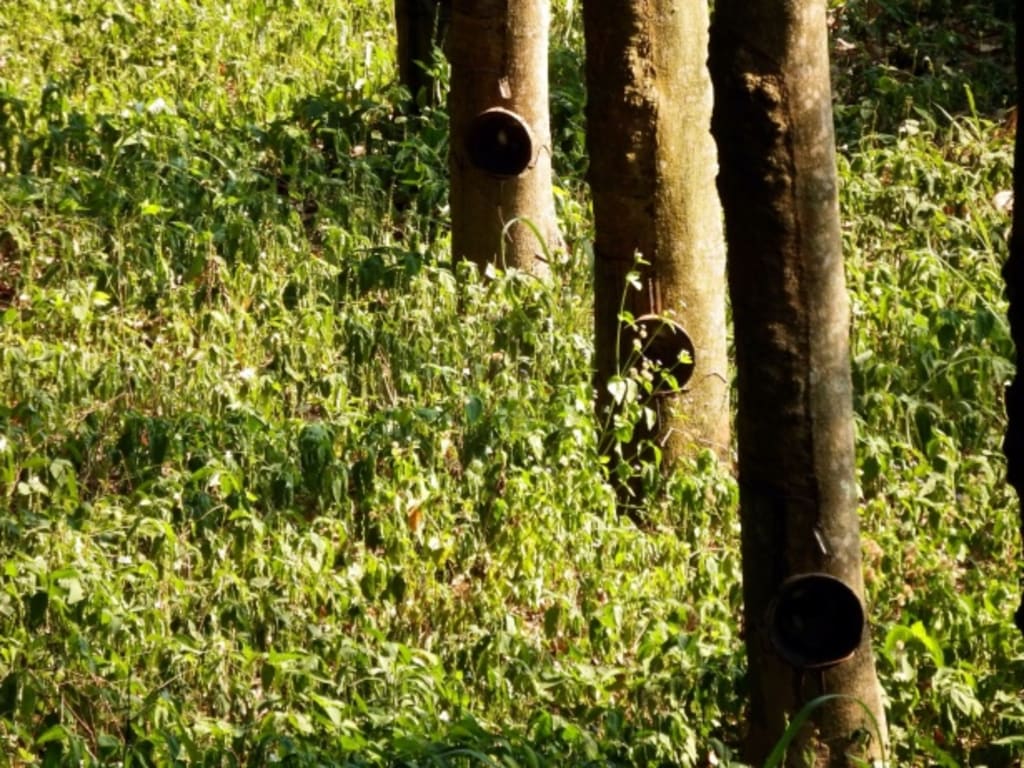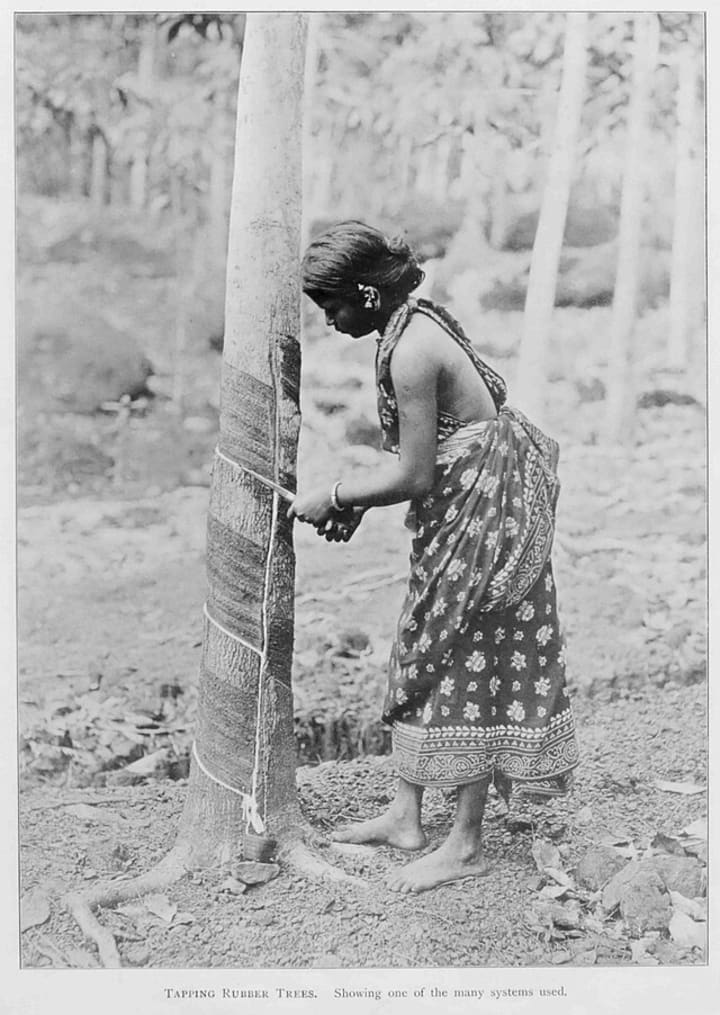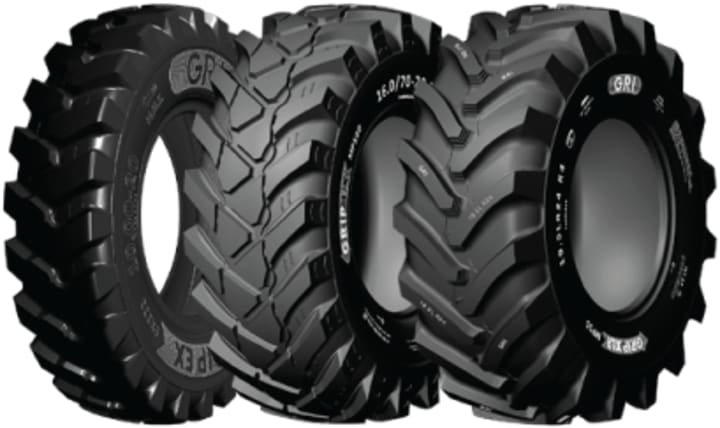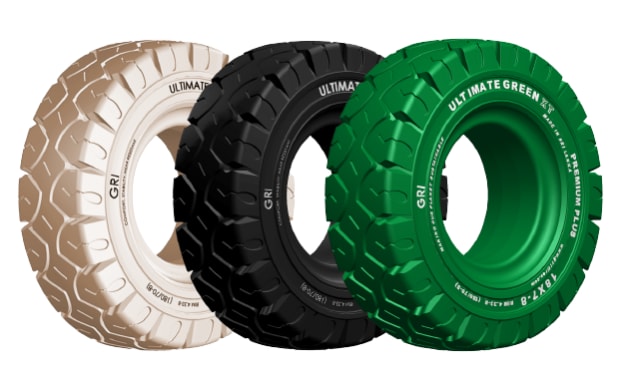Fascinating Facts About the Sri Lankan Rubber Industry
Prepare to Blow Your Mind!

You may know Sri Lanka for its stunning beaches, rich history, and flavorful cuisine, but did you know that the island nation is also a major player in the global rubber industry? dive into the world of Sri Lankan rubber and uncover some mind-blowing facts you never knew!
Rich History

Did you know that rubber cultivation in Sri Lanka dates back over a century? Introduced by British colonialists in the late 19th century, rubber quickly became a vital part of the country's agricultural landscape. Today, Sri Lanka remains one of the world's leading producers of natural rubber, and the industry continues to play a significant role in the country's economy, providing employment for thousands of people. The cultivation process involves tapping the latex from mature rubber trees, a delicate and skilled practice that has been passed down through generations of Sri Lankan farmers. The rubber industry is also undergoing modernization, with a focus on sustainable practices and improved yields to ensure its continued success in the 21st century.
Top Exporter
Sri Lanka is one of the world's leading exporters of natural rubber, renowned for its high-quality latex and rubber products. The country's rubber exports contribute significantly to its economy and global trade. This industry has a long history in Sri Lanka, dating back to the 18th century when British colonists first introduced rubber plants to the island. Today, rubber plantations cover a significant portion of Sri Lanka's land, particularly in the southern regions. The cultivation process is labor-intensive, and Sri Lanka's rubber tappers are known for their skill and expertise. Looking ahead, the future of Sri Lanka's rubber industry is likely to be shaped by factors such as global demand for sustainable and ethically sourced natural rubber, as well as the development of new technologies and applications for rubber products.
Eco-Friendly Practices
Sri Lankan rubber plantations are known for their sustainable and eco-friendly practices. Many plantations adhere to strict environmental regulations, promoting biodiversity and conservation efforts. These efforts include the integration of intercropping, where diverse plant species are grown alongside rubber trees. This practice not only enriches soil health but also creates habitats for beneficial insects and pollinators. Furthermore, Sri Lankan rubber plantations often emphasize responsible water management practices. This includes rainwater harvesting and the implementation of efficient irrigation systems to minimize water waste. Additionally, the industry is making strides in renewable energy adoption, with some plantations powering their operations through solar energy. These sustainable initiatives demonstrate the Sri Lankan rubber industry's commitment to minimizing its environmental impact and fostering a harmonious relationship with the surrounding ecosystems.
Innovative Products

From the biggest tire manufacturers in Sri Lanka to latex production, Sri Lanka produces a wide range of innovative rubber products that are used globally. The country's rubber industry continues to evolve, with new technologies and advancements driving product development.
Global Recognition
Sri Lankan rubber products are highly sought after in international markets for their quality and reliability. The country's reputation as a leading rubber exporter has earned it recognition and respect on the global stage. This reputation is built upon a long history of expertise in rubber cultivation and processing, resulting in a diverse range of rubber products, including tires, gloves, medical equipment, and industrial components. Sri Lankan rubber is known for its exceptional durability, elasticity, and resistance to wear and tear, making it a preferred choice for various industrial and consumer applications.
Furthermore, Sri Lanka's commitment to sustainable practices in the rubber industry further strengthens its position in the global market. From implementing reforestation programs to minimizing environmental impact during processing, Sri Lankan manufacturers prioritize responsible production methods, ensuring the long-term viability of the industry and the well-being of its people. This dedication to quality, innovation, and sustainability has positioned Sri Lanka as a leader in the global rubber industry, consistently exceeding international standards and garnering trust from customers worldwide.





Comments
There are no comments for this story
Be the first to respond and start the conversation.